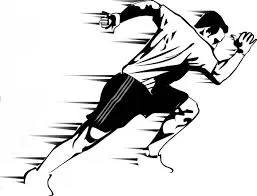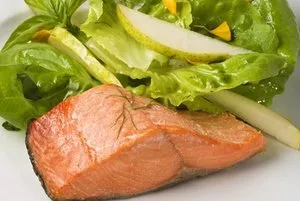With professional players weighing in at anything between 70kg and 140kg roughly it is clear that each player will have his own very individual needs when it comes to daily protein consumption. This means that a good sized prop (around 120kg) will need roughly 200g of protein in a day if he is training at an intense professional level. If you consider that a 100g chick breast contains roughly 20g of protein then the player would have to consume 10 chicken breasts in a day.
Now obviously players won’t just be consuming protein from chicken breasts all day everyday, there will be a variety of protein sources in their diet that will help to add up to the required daily dosage, however, as you can begin to imagine, eating just half of those 10 chicken breasts begins to get very expensive very quickly. This is where protein powders come in handy, they are a fast absorbing source of protein that cost significantly less than eating the required amount of protein from natural sources.
Do Protein Powders Actually Work?
So far I’ve already told you what you already know – protein is an essential component of our daily diets and as rugby players are generally a bit bigger and train a bit harder than the average person they require more protein in general. It is also fairly obvious that wherever possible it is preferable to consumer your daily protein requirements through natural foods such as good quality meats, dairy products and vegetable products.
The one area were protein shakes are a good source of nutrition is before or after a workout. Bracketing workouts with protein powder can prevent the body taking amino acids from our own muscle tissue during training and will also promote protein synthesis, key for muscle recovery and growth afterwards. The body requires a hit of protein immediately after a workout to help repair muscle tissue that is damaged during exercise.
It is therefore suggested that you consumer a dose of protein within 30 minutes of having completed a workout. Protein shakes are an ideal way of consuming a dose of protein immediately after having completed a workout to ensure you aid muscle growth. In addition protein powders are usually packed full of other useful nutrients to help aid muscle growth and repaid.
It is an oft held belief that carbs are bad and that protein is the essential component of muscle building. Whilst there may be some truth in this there is a requirement for a mix of complex carbohydrates and proteins after completing a workout in order to maximise muscle growth. The majority of protein powders are designed with this in mind and there fore contain the necessary complement of proteins and carbohydrates for post-workout consumption.
Some powders will also contain a mix of other nutritional products such as creatine which creates an all-in-one type product reducing the need to carry around multiple shakers to take different supplements. Again it is not the case that protein powders are a better alternative to real food, they may contain many of the necessary muscle building components but they do not contain all of the necessary macro and micro nutrients for a complete healthy diet.
So yes there is a benefit to using protein powders but it is nothing like what the sports nutrition companies would like to have you believe. We each require a specific amount of protein everyday, however the quantity will vary greatly depending on your size and your physical activity. Obviously very few of us will be training at the same intensity as a professional rugby player and therefore our requirement is likely to be nearer the 1.2g per kg of body weight than the 1.7g many rugby players will look to consume.
For the majority of people, it is possible to get their daily protein requirements from their standard diet assuming they are eating a range of high quality proteins such as eggs and grass fed beef. However, for some of us who requite a higher quantity of protein and aren’t able to invest in 10 chicken breasts a day protein powders are a viable alternative. They are especially important for consuming protein within the 30 minute window after a workout.
Are There Any Risks?
Although there are no specific risks associated with the consumption of protein powders, too much protein can be bad for your health. Excessive amounts of protein can lead to diarrhoea and beyond that, long-term over consumption can cause bone demineralisation and increase your risk of osteoporosis. So next time you see the scummy downing shake after shake hand him a pint and do his kidneys a favour.
What Types Of Powders Are There?
Whey protein is by far the most popular form of protein when consuming shakes. Whey isolate is filtered so that it is easily digested and therefore an ideal option for consuming after a workout to ensure you get a fast hit of protein. Cassein on the other hand is a much slower digesting protein and is therefore ideal for taking before bed to ensure the body has a constand source of protein whilst you sleep.
Recent studies show that while whey may kick-start anabolism, where the body repairs, it doesn’t prevent catabolism, where the body gets broken down, casein does this and research shows that this can be prevented by combining equal measures of the two for a sustained release post workout which improves recovery and growth. It is therefore important to research the exact type of protein required for your specific goals before making a purchase.
Even within the whey protein family their are different forms, whey concentrate is probably the cheapest way of consuming protein, however, whey isolate is slightly lower in fat whilst also being faster digesting so is potentially more relevant to backs who need to be as lean as possible whilst fuelling up for long cardio sessions. In addition there are also forms such as egg white and vegetable protein to be considered.
Take home message: sort the rest of your diet out first as you can get most of the requirements you need with a good meal plan!!



